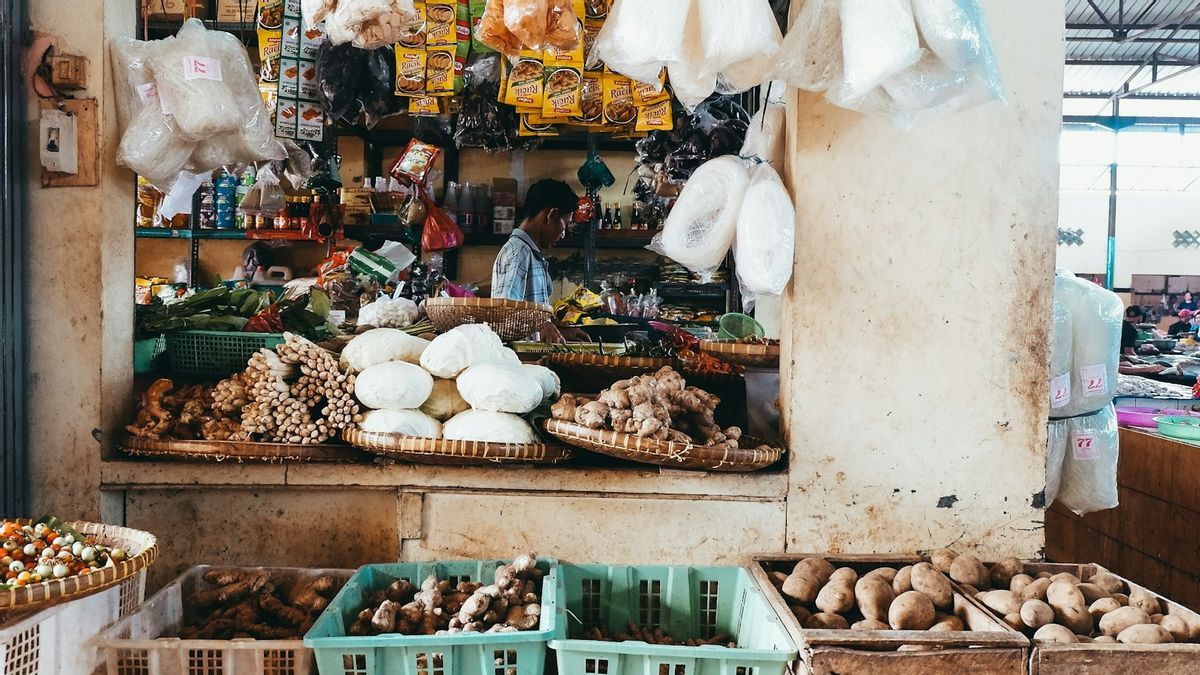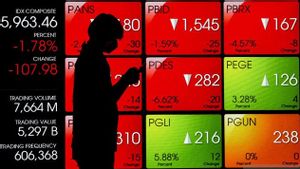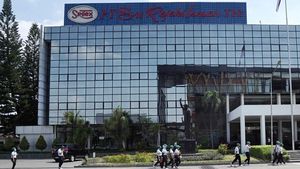JAKARTA - Indonesia's Consumer Price Index (IHK) in December 2024 experienced an increase of 1.57 percent on an annual basis or year on year (yoy) reaching 106.8, compared to November.
Senior Economist Masyita Crystallin said the increase was driven by an increase in the price of goods in the volatile price component (Volatile) by 0.12 percent, after previously experiencing deflation of 0.32 percent in November.
Meanwhile, core inflation (Core) remained stable at 2.26 percent, and price inflation regulated by the government (Administered) decreased from 0.82 percent to 0.56 percent.
Overall, inflation in December is still under control. This indicates that price stability policies are running well, although several groups of goods have experienced price increases," he said in his statement, Sunday, January 5.
On a monthly basis or month to month (mtm), inflation increased by 0.44 percent, higher than November (0.30 percent) and December last year (0.42 percent).
Masyita said this increase was driven by a price increase in daily needs of 7.02 percent and food, beverages, and tobacco by 2.48 percent. However, the telecommunications and transportation sector recorded deflations of 0.27 percent and 0.3 percent, respectively.
"Increases in the basic needs group are common towards the end of the year, especially because of increasing demand. On the other hand, deflation in the telecommunications and transportation sector provides a balance, so that inflationary pressures do not spike sharply," said Masyita.
SEE ALSO:
Masyita said the price of non-subsidized fuels such as Pertamina Dex and Pertamax 92 recorded a decrease of 14.8 percent and 9.4 percent, respectively, in line with the decline in world crude oil prices, which averaged 73.81 US dollars per barrel in December.
However, the price of 50 kg LPG has increased significantly by 17.9 percent, influenced by high year-end demand.
The energy sector reflects two different sides. On the one hand, the decline in world oil prices has a positive impact on non-subsidized fuels, but the high demand for LPG shows a distinctive consumption dynamic at the end of the year," explained Masyita.
In the food sector, Masyita said that the price of milled dry rice at the farmer level and at the mill level fell 8.9 percent and 8.5 percent, while the Harvested Dry Grain fell 5.47 percent and 5.34 percent, respectively.
"The price of various types of rice, both at the farmer level and in mills, continues the trend of falling prices even though the harvest season has passed (March-October), the market seems to be still trying to absorb the remaining farmers' unhulled rice from last harvest season," said Masyita.
Masyita expressed public optimism about economic conditions seems to be increasing. The Consumer Confidence Index in November rose to 125.86 from 121.1 in the previous month.
Meanwhile, Masyita said that the manufacturing sector also showed a positive signal with an increase in the Manager Purchase Index to 51.2, signaling an expansion phase.
"This condition makes optimism about the opening of employment opportunities, increasing income, as well as increasing production and sales activity in the future," he said.
However, Masyita explained that the public seems more selective in spending, especially on secondary and tertiary needs, including celebrating year-end holidays.
Loan data for industrial purposes and household consumption has increased since mid-2024.
However, this loan level has not returned to pre-pandemic conditions. In November 2024, the loan amount fell slightly to 10.109 percent from 10.44 percent in October.
We see that people tend to postpone large spending towards the end of the year. This pattern indicates that they are waiting for better momentum at the beginning of the year, especially for productive activities," he explained.
Indonesia's Consumer Price Index (JCI) in December 2024 experienced an increase of 1.57 percent on an annual basis or year on year (yoy) reaching 106.8, compared to November.
Selective behavior in consumption is considered as the impact of the experience during the pandemic, where people are used to being wiser in managing expenses.
In fact, Masyita explained that the news about the increase in Value Added Tax (VAT) which should have had an impact on goods prices did not affect inflation much significantly.
"The increase in VAT does not have much effect because people are used to limiting their household spending. There is a precautionary pattern that has been attached since the pandemic," he explained.
In the midst of this situation, Masyita said that the public also seemed to be careful while waiting for the breakthrough of a new government in the economic sector in 2025.
The key to the government's success is to maintain this trust with concrete steps in the productive sector. If that happens, consumption will gradually increase again and can create new jobs," he concluded.
The English, Chinese, Japanese, Arabic, and French versions are automatically generated by the AI. So there may still be inaccuracies in translating, please always see Indonesian as our main language. (system supported by DigitalSiber.id)

















